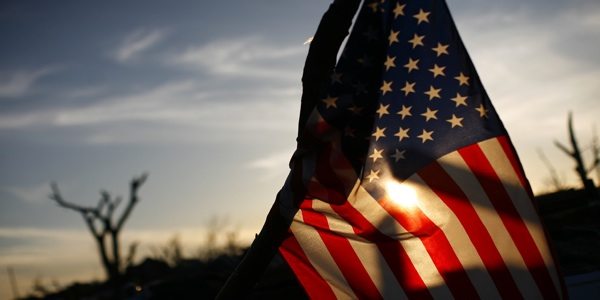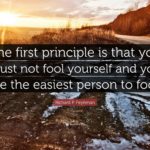I came to America for all the cliché reasons.
As a young boy growing up in Istanbul, America had assumed a dreamlike quality for me, culled from the eclectic set of American television shows selected for translation to Turkish. To me, America was Cousin Larry in Perfect Strangers, who takes Balki, his Eastern European cousin, under his wings in his Chicago home where they perform the “dance of joy” to celebrate good fortune. America was the Tanner family in Alf, who provide shelter to a furry extraterrestrial alien with a penchant for eating their cat.
I thought that if America had a place for the likes of Balki and Alf, perhaps it had a place for me too.
I was born into humble circumstances and wanted better opportunities in life. My father started working at age six to help support his bus-driver father and homemaker mother. He would wake up before dawn to pick up newspapers hot off press machines and sell them before school. My mother grew up in rural Turkey where my grandfather was a shepherd-turned-public school teacher who, alongside my grandmother, built the very school they taught in.
At the age of 17, I bid farewell to my parents and boarded a plane towards the New World to study astronomy at Cornell University, with the ultimate goal (influenced in no small part by Hollywood movies) of becoming an astronaut. America immediately embraced me like one of its own–despite my thick accent, broken English, skinny European jeans, and an embarrassing fondness for the music of Bon Jovi.
I quickly learned that if you asked for something, and you were willing to work hard for it, America’s better angels delivered. Only a week after my arrival, I landed a pinch-me-now job as an operations team member of the 2003 Mars Exploration Rovers mission. The project, supervised by Cornell astronomy professor Steven Squyres, would send two rovers named Spirit and Opportunity to Mars. America gave a 17-year-old boy from a developing country—who, just a few weeks before, was daydreaming about space—the opportunity to plan operations scenarios, design imaging algorithms, and help select landing sites on Mars.
I channeled my inner Balki and performed the dance of joy. For me, the hope that America was supposed to represent—its spirit and its opportunity—was no longer an abstract, cliché illusion. In America, if you had the spirit, the opportunity would materialize.
But in a brief, fleeting moment, America’s demons began to emerge.
When the Twin Towers fell on September 11, the ensuing Islamophobia plagued the nation, and Cornell was no exception. Although I was born in a majority-Muslim country, I never considered myself a religious person. Yet I found myself the target of bigoted comments from people I had considered good friends. It was the first time I felt like a minority in America.
Although September 11 revealed America’s Achilles’ heel—its tender, exposed nerve that releases its demons—America’s better angels had not disappeared. They were simply out-voiced by the loud fear mongering of their demonic counterparts. But if you knew where to look, angels were everywhere: the firefighter who stormed the Twin Towers never to return home, the Marine on a midnight operation against the Taliban, the ordinary American who resisted the simplistic impulse to paint all Muslims as traitors.
This was the paradox of America. Its eternal struggle between its demons and better angels. Its yin and its yang.
I came to realize that America’s strengths were also its weaknesses. The same country that was born of immigrants could turn against refugees with strange speed. The same country that promised life, liberty, and the pursuit of happiness could institutionalize slavery and imprison Japanese-Americans. The same country founded on the ideal that all men are created equal—and are endowed with certain inalienable rights—could deny those very rights to women and minorities.
The post-9/11 fear mongering was often cloaked under the innocuous banner of patriotism. According to a September 2002 Gallup poll, 69% of Americans considered themselves “extremely proud” to be an American. This sentiment struck me as deeply ironic. To me, being proud to be an American was akin to being proud to have blue eyes, a dark complexion, or any other automatically conferred trait. Gratitude and humility, not pride, were the right emotions for winning the birth lottery. Pride should be reserved for those who have to work for it.
Like all other immigrants, I continued to work hard to earn the title “American.”
I eventually abandoned my pursuit of astronomy in favor of law school, graduated at the top of my class, and clerked on the U.S. Court of Appeals for the Ninth Circuit. I then received an invitation from Chief Justice John Roberts of the U.S. Supreme Court to interview for a highly coveted clerkship in his chambers.
It felt like Muhammad Ali had called me for boxing tips.
At the end of my interview with Chief Justice Roberts, he asked me this question:
What makes you different from all other clerkship applicants?
I replied:
There lived two men in rural Turkey who spent much of their lives in poverty: Osman the bus driver and Şakir the shepherd. Their grandson is sitting here interviewing with the Chief Justice of the United States.
I didn’t get the clerkship, but I knew America would continue to present opportunities as long as I worked hard. A few years later, I found a dream job in academia, as a law professor teaching constitutional law.
While the better angels were generous in my adopted nation, I watched from a distance with growing concern the developments in my home nation. The government in Turkey had been turning more authoritarian since assuming power in the early 2000s. I had written critically of this trend and had become the target of scathing commentary by then-Prime Minister Recep Tayyip Erdoğan and his cronies in government-friendly newspapers. My name popped up in government emails leaked to Wikileaks. I no longer felt safe going home. I had done what my adopted country taught me—speak my mind—and incurred the wrath of my home country’s government.
Two weeks ago, after 17 years as an alien in the United States, I became a citizen. I took my oath standing shoulder to shoulder with 25 other men and women from 15 different countries. We all came from different walks of life, we looked different, and we all pledged allegiance to the United States with different accents. But we were united. We had traveled in the same path, met the demands of citizenship, and stood ready to become Americans.
I’m not an openly emotional person, but as I attempted to recite my oath, I found myself fighting back tears. Will I support and defend the laws and the Constitution of the United States against all enemies, foreign and domestic? Gulp, yes. Do I take this obligation freely, without any mental reservation or purpose of evasion? Something’s in my eye. Somewhere between the images projected on a screen of uniformed soldiers reciting their citizenship oath and a video message from the President greeting the newly naturalized citizens as his “fellow Americans,” I finally lost it.
The ceremony summoned memories of a distant past, of immigrants departing the Old World to arrive in the New. In many ways, I had it much easier than my predecessors. I didn’t have to escape a deadly revolution, brave the oceans, or wait in line at Ellis Island. But I did spend nearly two decades trying to become a citizen of my adopted country, navigating America’s complex immigration system, standing for hours in countless lines at American border queues and embassies, jumping from one visa type to another, and compiling more paperwork than I ever thought possible.
Although my oath required me to denounce all allegiances to foreign states, I cannot—and will not—forget where I came from. Turkey is a beautiful country, filled with some of the most generous and hospitable people I have ever known. But Turkey has its own demons, in the form of a power-hungry government hell-bent on crippling all institutions of its democracy.
At a time when America’s democratic future also looks grim, I decided to pen this commentary, to remind its citizens—my fellow citizens—that there is plenty of room for hope.
Virtually all countries admit immigrants. But few would allow a non-citizen from a minority religion, with no familial or personal connections to anyone of importance, the opportunity to work on a space project, clerk on its federal appellate courts, interview for a prized position with its Chief Justice, or teach constitutional law to its citizens.
To be sure, America has real demons that it must continue to confront. They’re not going to go away if we simply ignore them or accept their emergence as a fait accompli. And even if we manage to expel them, they’ll retreat only to emerge stronger for their next battle.
But it’s darkest right before dawn. And without the dark, there is no morning of light. America’s demons keep us on our toes, remind us to appreciate its angels, and ensure that we remain vigilant to fend off future hazards.
Sometimes, the demons will prevail. The dreams will collapse. The hopes will wither. The fear mongers and the demagogues will triumph. But only temporarily. I’m confident that America’s better angels can shake off its less-than-perfect pasts and rally the courage to roar back to life.
I know. For I’ve been personally struck by America’s demons and lifted by her better angels, finally to call it my home.
[A shorter version of this essay was published under a different title on TIME.com].
Bold


